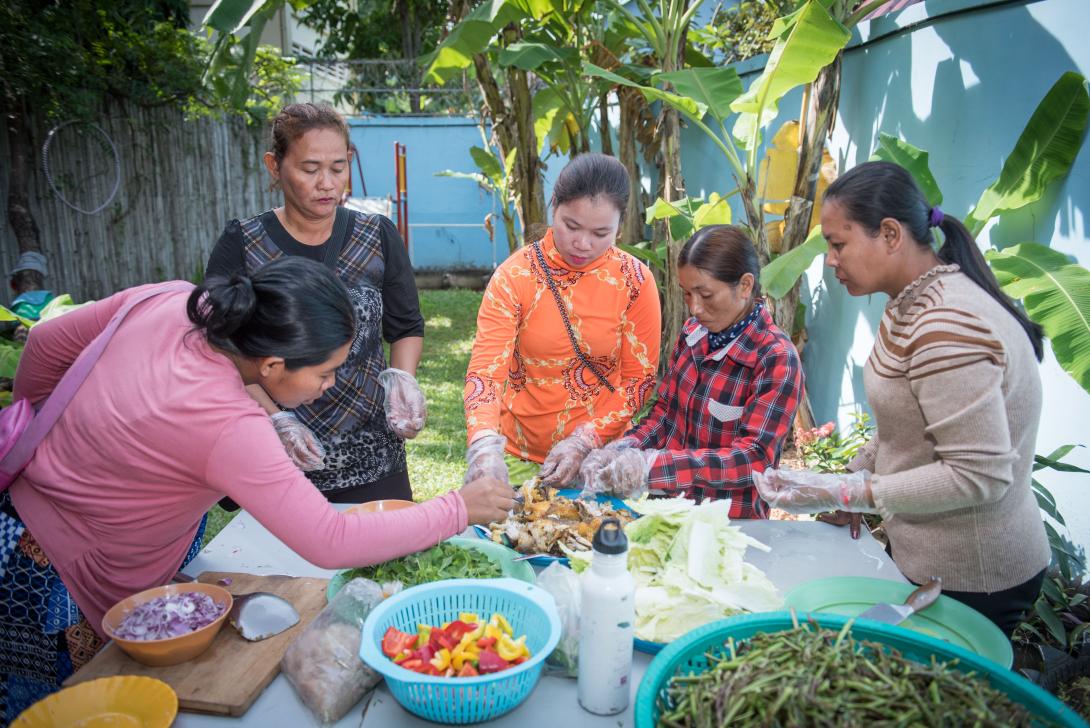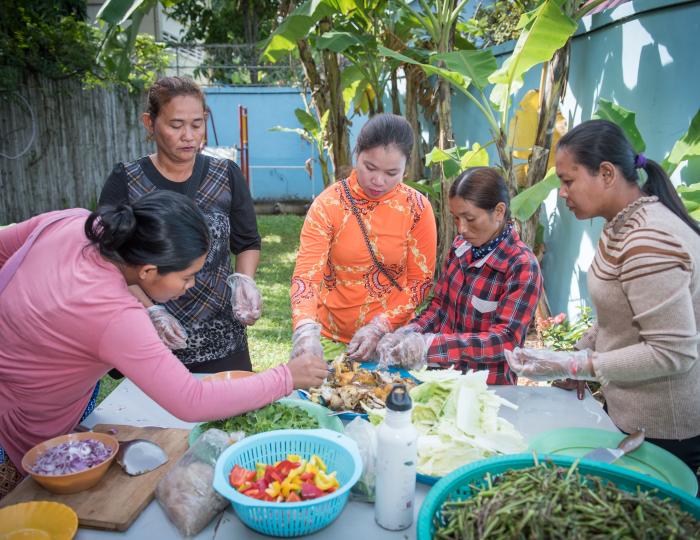- To date, five Family Houses have been established. Two in Asia, in Cambodia and the Philippines, and three in Africa, in Mali, Burkina Faso and the Democratic Republic of Congo.
To provide the best possible support to families, the professionals of the Family Houses take part in annual regional seminars run by Apprentis d'Auteuil and Planète Enfant et Développement. These seminars are not only training sessions on collective and individual support for families for the benefit of professionals, but also a place for exchanging practices and knowledge between professionals from the different structures. The themes of the seminars are defined according to the specific needs of our partners. During one week, participants have the opportunity to learn and exchange on their practices.
Last November and December, the Asia and Africa seminars took place successively. The first one took place in Siem Reap, Cambodia, and was co-organised by our partner the WRC (Women's Resource Centre). On this occasion, our Filipino partner Cameleon joined them. The Africa seminar was organised in Kinshasa by our partner Solidarité Batoto and brought together professionals working with families from our partner Kogl Taaba in Burkina Faso.
During these seminars, participants and facilitators reflected on different types of sessions with families and techniques and tools for collective support of families. The participants were also able to exchange on the difficulties they encounter in their daily work and the solutions they find.
Our work with families is based on two central approaches:
- A preventive approach by addressing any family identified as being at risk of vulnerability, without restricting ourselves to families whose children are at risk and in care.
- A collective approach through the development of spaces in which families collectively enrich their parenting practices and identify solutions to the daily challenges they face.
Within each Family Houses, families propose and organise activities which are thus adapted to their needs. In addition to the collective activities for exchanges between families, the socio-educational teams are present to offer individual support adapted to each family situation.

